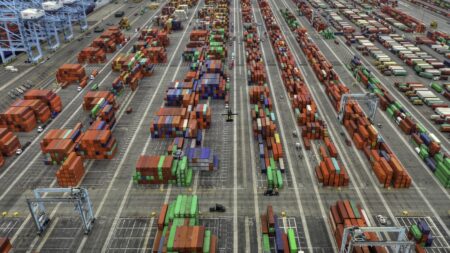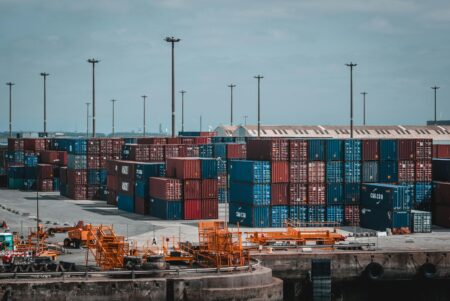DPIIT drives growth through milestones under PLI, boosting startups, FDI, and logistics efficiency.

In a significant development, the Department for Promotion of Industry and Internal Trade (DPIIT) has played a pivotal role in building a self-reliant and globally competitive India. From achieving milestones under the Production Linked Incentive (PLI) scheme to boosting startup ecosystems, streamlining logistics, and enhancing Foreign Direct Investment (FDI) inflows, DPIIT’s impact on India’s economy is undeniable.
In addition, over 200 projects worth ₹5,496 crore have been recommended by states to enhance logistics infrastructure as part of the broader framework of the PM GatiShakti National Master Plan and the National Logistics Policy (NLP). These efforts are set to propel India’s logistics sector into a new era of efficiency and competitiveness.
The PM GatiShakti National Master Plan, launched in 2021, integrates data layers across key infrastructure sectors such as roads, railways, ports, and telecoms, enabling coordinated planning for efficient logistics networks. This initiative has led to the onboarding of 44 central ministries and 36 states, with thousands of data layers being integrated. The Network Planning Group, as part of this effort, has already evaluated 213 projects with an overall cost of ₹15.48 lakh crore.
The National Logistics Policy, launched in 2022, focuses on reducing India’s logistics costs, improving the Logistics Performance Index, and creating data-driven decision-making systems for logistics. Notably, 37 logistics-related digital systems across 10 ministries have been integrated to streamline business processes, while logistics courses have been introduced at over 100 universities. Additionally, interministerial consultative groups and sector-specific plans are being formulated to improve efficiency in key industries like coal, cement, food processing, and pharmaceuticals.
Alongside these initiatives, India’s industrial infrastructure is also being boosted through the National Industrial Corridor Development Programme. This program aims to develop 12 new industrial cities and adopt Industry 4.0 standards, with a focus on sectors such as semiconductors, aerospace, and renewable energy. As of mid-2024, substantial progress has been made, with over 2,100 acres of industrial land already allocated.
These steps represent a strong commitment by the Indian government to creating a self-reliant, globally competitive logistics network, facilitating investments, improving business environments, and generating employment.
In the coming months, further developments in logistics infrastructure, including detailed reports like the LEADS report and updates on the National Single Window System, are expected to drive efficiency and growth in the sector.











